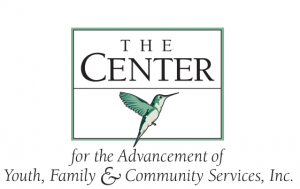By David G. Blumenkrantz, Ph.D. M.Ed.
In the last edition of the Paradigm Shift Blog I commented that America’s rate of incarcerations is compelling evidence of the real outcome of our youth development and education programs and systems. How did America become the most incarcerating nation on earth? And, what can be done to raise children who don’t wind up incarcerated?
Part of the solution can be found in the book: Small is Beautiful: Economics As If People Mattered (1972) by British economist E.F. Schumacher. It is one of the seminal books on nature-centered economics that brought the virtue of appropriately size technology to a wider audience. It trumpeted that bigger was not necessarily better and our present economic model is unsustainable.
Part II of the book is called “Resources” and pin points the most important ingredient for changing the existing economic model. The title of the chapter says it all: The Greatest Resource – Education. The first two paragraphs offer key insights into “What can be done?” His thought-provoking questions should have been given more attention then and are even more important now.
Throughout history and in virtually every part of the earth humans have lived and multiplied, and have created some form of culture. Always and everywhere they have found their means of subsistence and something to spare. Civilizations have been built up, have flourished, and, in most cases, have declined and perished. This is not the place to discuss why they have perished; but we can say: there must have been some failure of resources. In most instances new civilizations have arisen, on the same ground, which would be quite incomprehensible if it had been simply the material resource that had given out before. How could such resources have reconstituted themselves?
“Resources” from nature were not the problem. In fact the entire consciousness that even thinks in terms of “natural resources” rather than “natural relations” is at the root of the problem. Coming into right relationship with nature is an essential process in which we must engage our children as the central focus of their education. Schumacher views education as the greatest resource for our survival. Before we ask our children to pick up garbage and water gardens they must learn to love the earth as inseparable from themselves. Children should be helped to creatively imagine a future where their health and the health of our sacred Earth are interconnected. Schumacher characterizes our current problems as “… living the sins of our fathers.”
Race to the Top
“Living the Sins of Our Fathers”
Education is antiquated and based on old stories, “the sins of our fathers,” whose main themes revolve around competition and power. Our race to space against the Soviets in the 1950’s is now retold in the national education story: “Race to the Top.” The other education story being told is “Leave No Child Behind.” Yet, in any race someone is always left behind! Paradoxes and contradictions abound in our education and youth development policies that are carried out in fragmented programs, each touting their own virtues and within systems competing for limited financial resources. There are winners and losers in this race. And, our children are always the losers.
Schumacher writes: At present, there can be little doubt that the whole of mankind is in mortal danger, not because we are short of scientific and technological know-how, but because we tend to use it destructively, without wisdom. More education can help us only if it produces more wisdom, (p.86).
What does Schumacher say is wrong with education? In a word – ethics. “Education produced hundreds of narrowly focused silos to contain and distinguish the different disciplines of science and technology. They reduce the primary focus to producing ‘know-how’, without’ knowing how’ to use the end result of science & technology for the highest good – to benefit of all human kind and nature.”
Schumacher calls for a revolution in education, whose task would be; first and foremost, the transmission of ideas of value, of what to do with our lives. There is no doubt also the need to transmit know-how but this must take second place, for it is obviously somewhat foolhardy to put great powers into the hands of people without making sure that they have a reasonable idea of what to do with them.”
More than anything youth need values and ethics in education that make their lives understandable and meaningful. The low priority we place on values and ethics in education has lead to the “permanent crisis” and launch our children into a pipeline to prison.
Children are not able to come of age knowing how to live in ways that serve the highest good. Nor do they know how to use the power of technology and science they’ve learned in a way that works for everyone and respectful of our relationship with nature and our sacred Earth.
Real education should educate us out of self into something far finer
– into selflessness which links us with all humanity.
Viscountess Nancy Astor
American-born British politician (1879-1964)
Part II coming soon – The second part will address practical pathways to solutions and a Place of Revolution in Education. The Conversation Continues. Stay tuned and Stay Warm!
By David Blumenkrantz Ph.D. M.Ed.
Education: Our Greatest Wasted Resource© ♥ Part I was originally published @ Paradigm Shift and has been syndicated with permission.
Sources:
Our authors want to hear from you! Click to leave a comment
Related Posts





